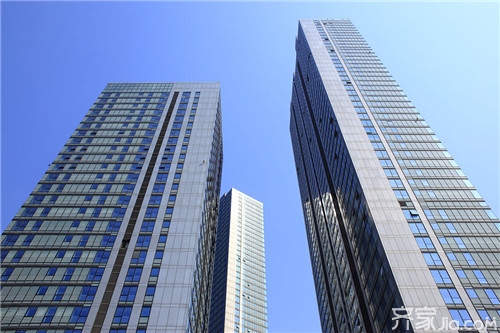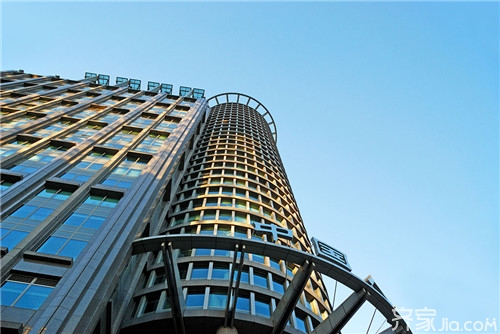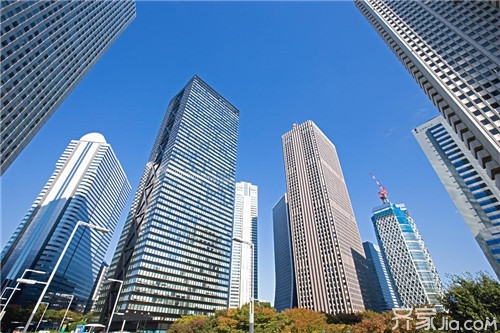The seepage of water in high-rise buildings is a quality problem. The seepage of water in the outer walls of high-rise buildings is one of the most serious problems. For a residential building with a high number of floors, a series of phenomena such as external wall seepage can cause great inconvenience and inconvenience to users, and some users even have a spiritual burden. The seepage of water in the external walls of a high-rise residential building is not just a construction problem. It is a systematic project and has relations with supervision, construction, and design. Therefore, relevant departments should take timely measures to solve these problems. So how does the water seepage in the high-rise external walls ? First, the causes of water seepage in the outer walls of high-rise residential buildings (a) Factors in the construction of infill walls Construction units generally have strict requirements on the framework and structure of the main body, but they have not paid enough attention to the construction of infill walls. Eliminating the plastering layer of the inner wall from the seepage part of the external wall, you can see that the vertical joints of the wall have “quiltingâ€, some of the mortar joints are even transparent, and some scaffold eyes have not been sealed with bricks, just casual use. Some of the mortar was blocked, resulting in holes in the inside and “paste the windows†outside. (B) Decoration factors The cleaning of the basement of the outer wall bricks is not clean, the grassroots treatment is not in place, the plastering of the leveling layer is relatively thick, and the brickwork does not drench the water, resulting in cracking and hollowing of the screed. On the spot, the tile joints are not smooth, not full, and not serious. There are many “quilting†joints on the tile. The mortar on the back of the tile is not well-stuffed, and there are water channels. Squeegees and joints are used. The treatment of plain cement slurry is the cause of water seepage in the outer walls of high-rise residential buildings. (III) Installation Factors In the installation of rainwater pipes, the supporting angle steel roots are not well sealed with mortar. Some households do not use mortar to seal the bolt holes on the fixed protection frame when the air conditioner is installed; there is no plugging around the external wall pipe. These factors are all above. Caused the seepage of the external walls of high-rise residential buildings. (four) aluminum alloy window installation factors The tightness of the sealant used between the aluminum alloy window frame and the wall is not enough, some are too thin, while others are the glue that loses its waterproof function. The rubber strips installed between the glass and the window sash have been broken, cracked, out of place and missing corners, resulting in a large gap between the window sash and the glass. The sliding track of the aluminum alloy window has no drainage hole. When a heavy rain is encountered, it forms water and seeps into the room. II. Measures to Prevent Water Leakage in Exterior Walls of High-Rise Houses (1) Designing exterior walls with low water absorption blocks The moisture content of the block is controlled within a certain range. The cement mortar used should be cement mortar. The mortar ratio should also be strictly controlled to ensure the strength of the mortar and improve the ability of the mortar to resist water seepage. (b) Defects in the control of the wall When the overhanging scaffolding is dismantled, all the steel tubes in the wall should be removed, and mortar should be used to plug the holes. After the outer wall is removed from the mold, the bolt hole should be dug and cut into a bell mouth shape and plugged with mortar. (c) Remedy Cracks in Lap Joints The contact between the strong beam and the block should be about 600 millimeters along the height of the column or the wall. Racks should be placed in the mortar in the wall. When masonry blocks are built, they should be pressed into the mortar joints to increase the wall's resistance to deformation. When blocks approach two hundred millimeters or so at the bottom of the beam, they should be spaced about fifteen days to ensure adequate settlement of the blocks. (4) Exterior wall construction In the thicker parts of the external wall plastering should be used layered construction, in the inner layer of steel mesh, to control the ratio of plastering mortar. The decorative surface of the external wall must ensure that it is both waterproof and aesthetically pleasing. In the external wall veneer tiles should be strictly controlled quality, comprehensive and careful inspection to avoid emptying phenomenon. The gray seam of the tile requires a control of more than eight millimeters. When hooking, it should be hooked horizontally and then vertical. After the crack in the tile is finished, wipe the surface of the tile clean. (V) Strengthen construction management In the construction process, the construction procedures should be strictly implemented, and subcontracting, subcontracting, or grabbing the construction period should not be allowed. Scientifically and reasonably determine the project cost. In a word, the seepage of water in high-rise buildings not only affects the appearance but also affects the function of the use of houses. In the construction process, attention should be paid to starting from the details, strengthening quality supervision and dynamic management, and firmly preventing the occurrence of various quality problems. High-rise building fire escape knowledge Knowing these common senses of fire can save you at a critical time Once a high-rise building has a fire, don't rush to jump. If the floor is already on fire and the stairs have not been sealed, the fire is not very fierce. You can put on the quilts soaked in water, rush down the stairs from the upstairs or enter the evacuation stairs and then evacuated to safety. Escape from the aisle and keep your cat on your waist, close to the wall, and walk your head as close to the ground as possible. People with children should take the children away. When you flee, you must use a wet towel to cover your mouth to reduce the damage of smoke. Where is the office "refuge floor"? What are the facilities? Between the first floor of the high-rise building to the first refuge floor or the two refuge floors, it is generally not more than 15 floors. The reason for this rule is that most fire ladders have a rescue capability of about 50 meters, which is roughly equivalent to the height of 15 floors. The safety stairs must pass through the evacuation floor. When running down the stairs, the escapee is forcibly allowed to enter the evacuation tier, and the evacuation personnel can only go out from another exit after one circle. First rule of fire escape: Evacuate the fire as soon as possible, never return to the fire In the event of a fire, fire extinguishers or fire brigades may be used to extinguish the fire at the first time. At this time, people should be called out to participate in the fire extinguishing and warning. If the fire cannot be controlled, they should be evacuated immediately and the door should be closed to prevent smoke. Enter the walkway. After escaping from the fire, do not scruples on the items left in the room and return to it. Residents below the 10th floor can use the stairway corridor to escape. Residents on the 12th floor and above can use wet towels to cover their mouths and noses and run to the rooftops during the early stages of fire development. If they are already in the middle and late stages of a more serious fire, residents should stop running upstairs and seek a relatively safe one. Escape from the balcony or window, keep breathing free and wait for firefighters to save. Escape error 1: Take the elevator and blindly jump off the stairs Do not drill under the bed, wardrobe, or attic to avoid fire. These are the most dangerous places on the fire scene. In addition, do not jump blindly, do not receive timely rescue, but also in high-level situations must not blindly jump, can be used in the room sheets, quilt, curtains and other fabric torn into a load-bearing cloth rope, tied to the window Or the components of the balcony slide downstairs, you can also use doors and windows, balconies, drains, etc. to escape and save themselves. Escape Error 3: Exaggerate or Avoid Danger When a fire alarm signal comes, if subjective fantasy alone exaggerates the danger of fire, it is easy to cause panic, loss of reason, indiscriminate selection of evacuation routes, and even jump from dozens of high-rise buildings; otherwise, intentionally avoid danger , will let you lose valuable evacuation time. Escape error two: under the plug to escape the flow Buildings caught fire and escaped upwards. At this time, quite a few people were trapped in the upper floors. When smoke enters the stairwell, the “smoke effect†will cause the smoke to spread quickly, causing the person to be smoked and even die. Editor's summary: The relevant information on how to deal with the seepage of high-rise external walls is introduced here for everyone. I hope this article will be helpful to everyone. If you still have something you don't understand, you can leave a message to Xiaobian at the bottom. We will answer your questions as soon as possible. Renovation Wall Surface Treatment Price External Wall Water Penetration Balcony Exterior Water Infiltration Living Room Glass Partition Wall Balcony Wall Decoration Emergency Led Drivers,Emergency Battery Backup Led Driver,Led Emergency Backup Driver,Emergency Light Drivers Foshan Nai An Lighting Electric Co.,ltd , https://www.twinspotlights.com

